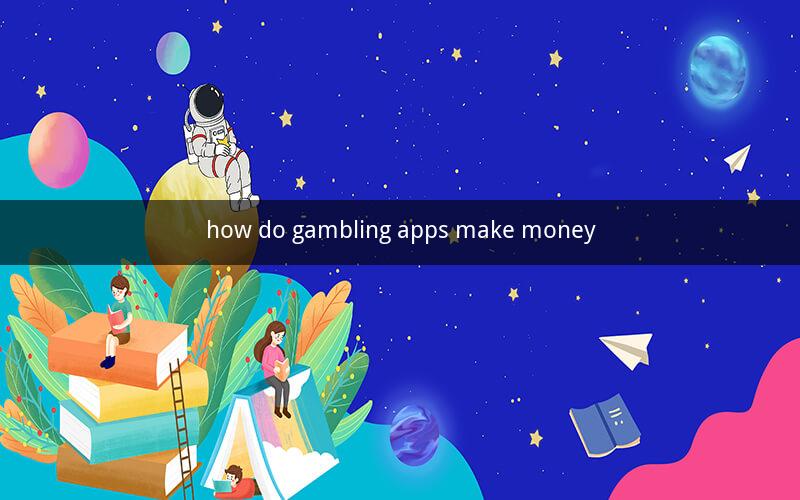
Table of Contents
1. Introduction to Gambling Apps
2. Types of Gambling Apps
3. Monetization Models
- In-App Purchases
- Freemium Model
- In-Game Ads
- Affiliate Marketing
- Premium Membership
- Sponsorships and Partnerships
4. User Engagement and Retention
5. Challenges and Ethical Considerations
6. Conclusion
1. Introduction to Gambling Apps
Gambling apps have become increasingly popular in recent years, offering a convenient and accessible way for users to engage in various forms of gambling from their mobile devices. These apps range from simple lottery games to complex casino-style experiences, providing a wide array of options for users to enjoy. However, one question that often arises is how do these apps generate revenue?
2. Types of Gambling Apps
Gambling apps can be categorized into several types based on the games they offer:
- Lottery and Scratch Card Apps: These apps allow users to purchase lottery tickets or scratch cards and check their results online.
- Casino Apps: Offering a variety of casino games such as slots, poker, blackjack, and roulette.
- Sports Betting Apps: Providing users with the ability to bet on sports events.
- Social Gaming Apps: These apps allow users to play games with friends or against other players, sometimes with a gambling aspect.
3. Monetization Models
The revenue generation strategies for gambling apps can vary widely:
- In-App Purchases: Users can purchase virtual goods or services within the app, such as coins, tokens, or additional game features.
- Freemium Model: The app is free to download and use, but certain features or content require in-app purchases to unlock.
- In-Game Ads: Advertisements within the app can generate revenue through ad impressions or clicks.
- Affiliate Marketing: Apps can earn a commission by promoting other gambling sites or products within the app.
- Premium Membership: Users can pay a monthly or annual fee to access exclusive features or content.
- Sponsorships and Partnerships: Apps can partner with brands or organizations to offer sponsored content or promotions.
4. User Engagement and Retention
Gambling apps often employ various strategies to engage and retain users:
- Game Variety: Offering a diverse range of games can cater to different user preferences.
- Rewards and Bonuses: Providing incentives such as free spins, bonus money, or loyalty points can encourage users to keep playing.
- Personalization: Tailoring the app experience to individual user preferences can enhance engagement.
- Social Features: Allowing users to connect with friends or join online communities can increase retention.
5. Challenges and Ethical Considerations
Despite their popularity, gambling apps face several challenges and ethical considerations:
- Addiction: There is a risk of gambling addiction, and apps must implement responsible gaming measures.
- Regulatory Compliance: Gambling apps must adhere to strict regulations to operate legally in certain regions.
- Data Privacy: Handling user data responsibly is crucial to maintain trust and comply with privacy laws.
- Marketing Practices: Ethical marketing practices must be employed to avoid misleading or targeting vulnerable individuals.
6. Conclusion
Gambling apps have evolved into a significant part of the mobile gaming industry, offering users a variety of entertainment options. By utilizing various monetization models and focusing on user engagement, these apps can generate substantial revenue. However, it is essential for app developers to address the challenges and ethical considerations associated with gambling to ensure a responsible and sustainable business model.
---
Questions and Answers
1. Q: What is the most common monetization model for gambling apps?
- A: The most common monetization model for gambling apps is the freemium model, where the app is free to download and use, with in-app purchases available for additional features.
2. Q: Can gambling apps be addictive?
- A: Yes, gambling apps can be addictive, which is why many apps implement responsible gaming measures to help users manage their gambling habits.
3. Q: How do in-game ads contribute to the revenue of gambling apps?
- A: In-game ads contribute to the revenue of gambling apps through ad impressions and clicks, where advertisers pay for visibility and engagement.
4. Q: Are there any legal restrictions on gambling apps?
- A: Yes, gambling apps must comply with strict legal regulations, which vary by region, to ensure they operate legally and ethically.
5. Q: How can gambling apps retain users?
- A: Gambling apps can retain users by offering a variety of games, rewards and bonuses, personalized experiences, and social features.
6. Q: What are the ethical considerations for gambling apps?
- A: Ethical considerations for gambling apps include preventing addiction, ensuring data privacy, employing responsible marketing practices, and adhering to legal regulations.
7. Q: Can gambling apps generate revenue through affiliate marketing?
- A: Yes, gambling apps can generate revenue through affiliate marketing by promoting other gambling sites or products within the app.
8. Q: How do premium memberships work in gambling apps?
- A: Premium memberships in gambling apps allow users to pay a fee for exclusive features or content, often providing a more enhanced experience.
9. Q: What role do social features play in user retention for gambling apps?
- A: Social features can play a significant role in user retention by allowing users to connect with friends, join communities, and compete with others.
10. Q: How can gambling apps balance profitability with responsible gaming?
- A: Gambling apps can balance profitability with responsible gaming by implementing tools to help users manage their gambling, providing education on responsible gaming, and adhering to legal and ethical standards.